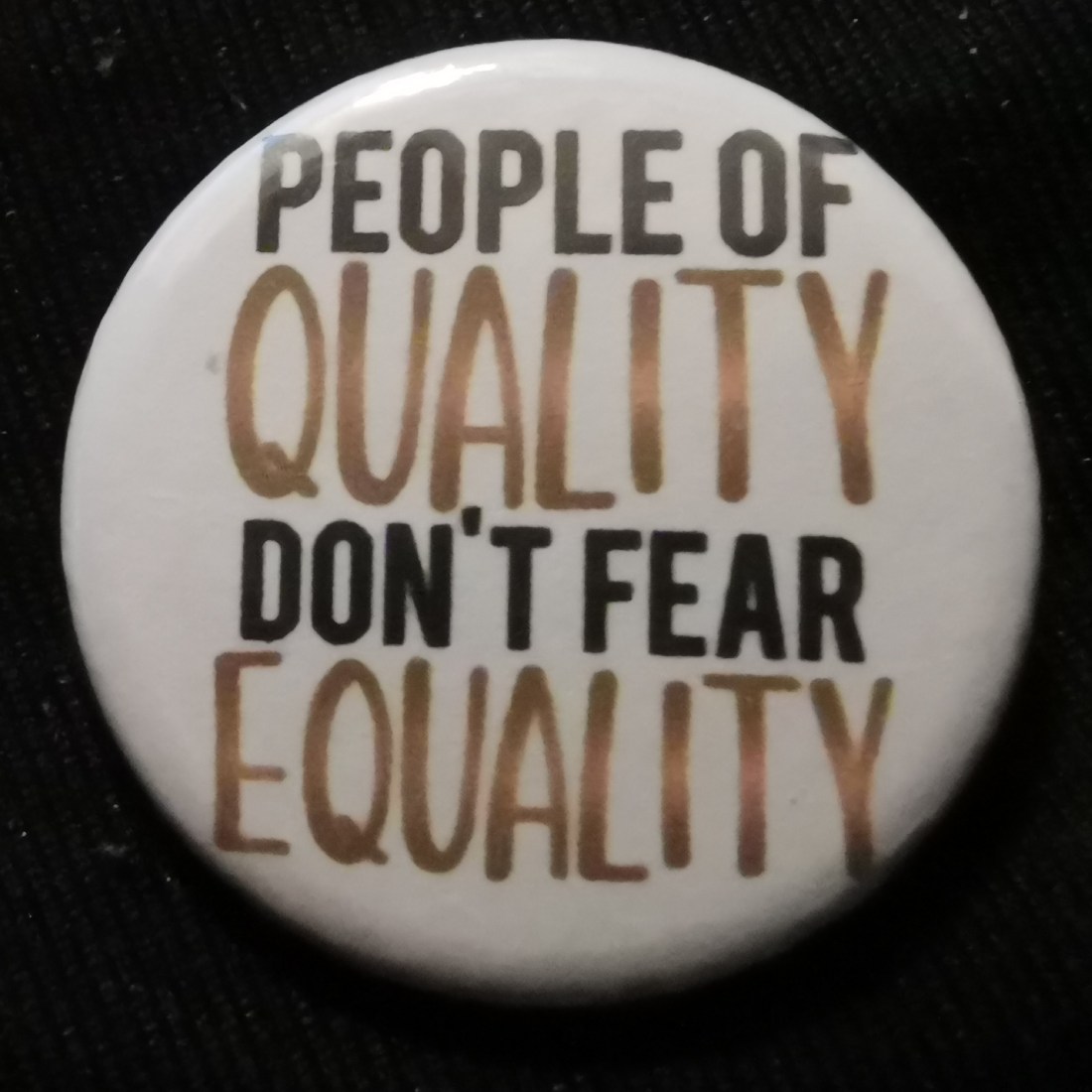https://www.falkirk.gov.uk/coins/submissiondocuments.asp?submissionid=18842
Like the motion yesterday, I don’t wish to go over old ground because I believe that what was brought forward during the motion in November was a detailed and reasoned explanation of why we needed to be committing as a council to do what is within our power, to move towards a diverse and inclusive council.
Though it is only one small part of the overall motion, that I will shortly again move, Action point 7 states:
To be leaders by example; embodying in conduct & language during all meetings, public and private, the welcoming and respectful environment that Falkirk Council considers critical – between other elected members, officers, staff and public, over and above minimum legal standards.
Not that anything in the motion should cause division, but To be honest, I thought that this should be the least controversial statement of the recommendations.
These are simply the standards of “Civility in Public Life” – something which the updated code of conduct for councillors, and indeed the old code, are based on.
Duty
Selflessness
Integrity
Objectivity
Accountability and Stewardship
Openness
Honesty
Leadership and
Respect
You don’t really need to have much of a long memory, 24 hours will do, to see that if this is something that we already do aspire to, as is our duty as elected members, we are not really knocking it out the park in terms of demonstrating it. We might not always have a scoreline of 6-0 or even 4-1 against when it comes to that, but it’s at times difficult to find meetings where we are collectively even achieving a no score draw.
And that does put people off from standing and becoming part of elected life,
Because, unjustified though it may be, given how hard members work across this entire chamber, the hours put in and how seriously we take the crucial responsibilities we have, the image that is projected by meetings like yesterday doesn’t fit with that and I think it does none of us credit collectively if we allow that view to be how the public sees us.
As I say, I didn’t actually anticipate talking at all about that part of the motion but I was embarrassed by some of the discourse yesterday and it’s something I am glad is highlighted within the motion and I hope members will agree to reaffirm this today.
I spoke extensively last time round on the need for greater diversity in politics in general, and how important it is to represent that topic accurately and responsibly. So I just want to again clarify that this isn’t about tick box exercises or trying to bring some fluffy wooly idealised notion of diversity and equality that we can then just ignore.
This is about the fundamental principle that we achieve decisions which are more representative and therefore more relevant to the constituents we serve, if we have a more representative democracy model and that means having elected members around the table that reflect the richness of our communities too.
Unconscious bias training will help meantime and it is essential to revisit periodically too but it is a poor substitute for proper representation. For nothing about us, without us. Underrepresented groups cannot continue to be relegated to be served on the menu, they, we, must have a seat at the decision making table, with a voice to be equally heard, alongside others.
Like the climate change topic we debated yesterday, of course we cannot solve the shameful lack of diversity in local government as a whole, by words or even actions, here in Falkirk Council. But that doesn’t mean we should do nothing or engage in whataboutery that only leads to further inaction and finger pointing.
We should be doing everything possible we can, within the sphere we are in, and that is what this motion was designed to do by identifying some practical measures we could take forward and the initiatives and work of others which we could support.
I was sad that it was bumped and I felt, not given the time, again with the other motion on that agenda, that it deserved as a serious stand alone item. Not one that would be inevitably buried at the end of a massive full council report. But here we are.
I’m glad however that the report which has come forward, essentially demonstrates the competence and need for the measures asked for in the action points of the original motion, though if I am honest, I feel it was unnecessary to burden officers with producing yet another report in such a short timescale when they have so many other pressures to attend to and we could have debated this and had answers to these questions during the special council in November.
I thank officers for the work they have done however in demonstrating the validity of this motion and accordingly, given one additional suggestion has been put forward in the report which fits the motion, and in order to avoid future duplication of work for officers in this regard, I am happy to add an additional action point within the motion.
This is in view of an existing Equalities champion position which has remained unfilled, which is detailed in council’s Equal opportunities Policy. It is suggested that this be widened to the title of Equalities and Human rights champion. I think that this is a welcome suggestion and in order to ensure that this position can be properly scoped out and filled at the same time as the Young People’s Champion asked for, I am happy to include that as a new action point in the motion which will be circulated in writing shortly.
It is clear from the report that the equalities duty applies to every function of the council and that includes the decision making functions and all policies and practices of the council. It makes it clear that this extends to the conduct and behaviour of elected members also.
The practical measures such as giving more prominence to the availability of EPIAs in reports, with a clear link highlighted and available to elected members to consider ahead of decision making, are important and will help elected members to give better scrutiny and consideration of these matters, while executing our legal duties under the equalities act in decision making.
I would also like to add one small addition to point 6 of the motion which refers to the Cosla cross party working group who are working on removing barriers to underrepresented groups in becoming elected to local government – and indeed finding ways to retain them once they are elected, as many leave for a variety of reasons after one term.
I was disappointed that opposition members laid accusations of this motion being brought for political motives last time round, and indeed I referred to the cross party work of members and groups of all parties and none in my summing up. I again wholeheartedly praise the work of Cosla President, Alison Evison, a Labour member, and found her recent evidence to the Scottish Parliamentary committee on Local Government on this topic, to be absolutely spot on and very necessary. If you haven’t watched that evidence session, I would recommend that you do. I thank her for using her platform to say the things which many of us believe need saying and I hope we can as a council, support their work.
It’s not a criticism of officers, merely an acknowledgement of the fast moving and many layered topics in this work, that there are some omissions from this report in terms of that work and I am accordingly suggesting that we invite Cosla President Alison Evision to brief Falkirk Council members on what that contains. Alison has indicated that she would be very happy to make time to do so if diaries allow and I thank her for her supportive words whenever we speak on these matters. It must be truly a collective effort.
I hope that this demonstrates the commitment of the administration in bringing forward this motion, in a non party political way but instead in the spirit of making progress towards a truly diverse and inclusive council, which will benefit all our constituents, the quality of decision making and I dare to hope, the tone and constructive environment of meetings to come.


